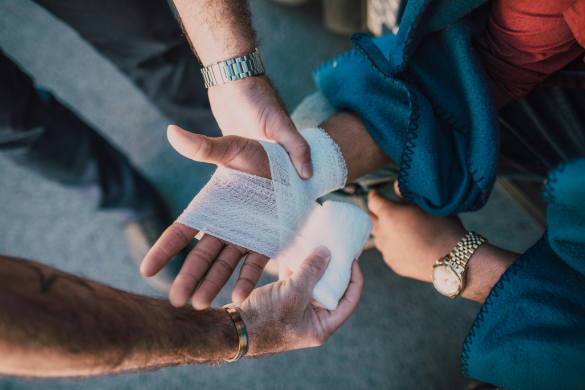Premises liability laws in Indiana hold property owners and managers legally liable for anyone who visits their property, which means they are responsible for ensuring the premises are safe for visitors and repair hazards on the property or warn visitors of such dangers. If a person suffers an injury on property owned or managed by another individual, the injured party may file a lawsuit against the property owner or manager to recover losses.
If you or a loved one was injured in another person’s property in Indianapolis, do not hesitate to allow Hayes Law Office to protect your rights and best interests in court and help you recover your entitled compensation. With more than 18 years of experience, our trial-tested legal team has helped more than thousands of clients obtain the most favorable outcome in their cases. We are ready to investigate your accident, collect evidence and build a strong and personalized legal strategy to hold the property owner liable for their negligence.
Our firm handles the following types of premises liability cases in Indiana:
- Slip-and-fall accidents
- Negligent security
- Swimming pool accidents
- Elevator and escalator accidents
- Falling objects
- Defective property conditions
- Fires and explosions
- Dog bites
- Snow and ice accidents
- Toxic chemical exposure
How To Prove Premises Liability
In order to succeed in a premises liability lawsuit, you must demonstrate that certain elements existed at the time of your accident. But first,
we must identify the type of visitor you were on the day of the accident.
The following are three types of visitors:
- Invitees – An invitee is someone who the property owner invites for his/she financial benefit, such as a customer who enters a store. Property owners owe the highest duty of care to such visitors, which means they must ensure the premises is safe by repairing property hazards or warning invitees about a hazard that cannot be immediately fixed.
- Licensees – A licensee is a person who has permission to enter the premises, often for their own benefit, such as a family member or a friend who stops by to visit the property owner. Compared to invitees, owners owe a lower duty of care by only being required to warn licensees of hidden dangers on the premises that owners are aware of.
- Trespassers – A trespasser does not have permission to enter or remain on the property. As long as property owners do not intentionally or knowingly injure trespassers after discovering their presence, they do not owe trespassers any legal duty of care.
The first element you must prove is that the property owner owed a duty of care to ensure you were safe. This means that the owner or manager
was lawfully bound to either fix any known hazard or provide a proper warning about the danger on the property.
Next, you must show that the owner breached their duty of care by either knowing about the hazard that caused your injury or should have known
it existed on the property, and failed to take the necessary steps to fix the situation. Then, you must show you sustained an injury while visiting the property through evidence such as medical records and testimony from medical specialists.
Lastly, you must show the property owner’s breach caused your injury. The owner’s negligence must be a substantial contributing factor to the injuries you sustained.
Schedule A Free Consultation Today
During this difficult time, we are supporting you from start to finish. Let us help you maximize your entitled compensation while you make the best
possible recovery from injury.
Call (317) 759-1515 to discuss your case with our Indianapolis premises liability lawyer.



